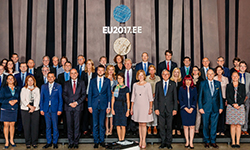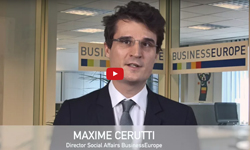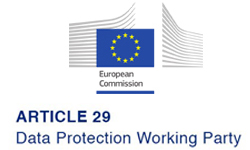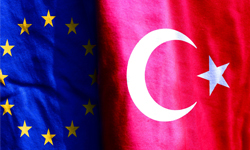BusinessEurope Headlines No. 2017-27
Employment and Social Affairs Council debates work-life balance
 During an informal meeting of the Employment and Social Affairs Council (EPSCO) in Talinn on 19-20 July 2017, BusinessEurope Social Affairs Director Maxime Cerutti pointed out that despite the progress made over the last decades, women’s employment rate is still more than 10 percentage points lower than that of men across the 28 EU Member States. He explained that reducing this persisting gap will not be achieved with additional leave entitlements granted at EU level for working parents and carers. These measures will keep women out of the labour market and encourage more men not to work or to work less. BusinessEurope advocates to maintain the existing EU legislative framework, which is adequate, and to focus policy efforts at EU and national levels on improving policy coordination to invest in care infrastructures, including childcare, in the Member States. “EU action in the field of work-life balance should not undermine the competitiveness of enterprises. It should also not interfere with collective bargaining in the Member States”, Cerutti concluded.
During an informal meeting of the Employment and Social Affairs Council (EPSCO) in Talinn on 19-20 July 2017, BusinessEurope Social Affairs Director Maxime Cerutti pointed out that despite the progress made over the last decades, women’s employment rate is still more than 10 percentage points lower than that of men across the 28 EU Member States. He explained that reducing this persisting gap will not be achieved with additional leave entitlements granted at EU level for working parents and carers. These measures will keep women out of the labour market and encourage more men not to work or to work less. BusinessEurope advocates to maintain the existing EU legislative framework, which is adequate, and to focus policy efforts at EU and national levels on improving policy coordination to invest in care infrastructures, including childcare, in the Member States. “EU action in the field of work-life balance should not undermine the competitiveness of enterprises. It should also not interfere with collective bargaining in the Member States”, Cerutti concluded.
![]() Contact: Guillaume Cravero
Contact: Guillaume Cravero
 BusinessEurope position on work-life balance
BusinessEurope position on work-life balance
BusinessEurope Director for Social Affairs Maxime Cerutti comments our position on work-life balance for working parents and carers.
Consultation concerns over data protection guidelines

The General Data Protection Regulation (GDPR) should be applied in the most business-friendly manner possible and avoid interpretation that adds burdens or creates legal uncertainty. That is why BusinessEurope signed a joint industry letter to the European Commission First Vice-President Frans Timmermans and the Chair of the Article 29 Working Party, Isabelle Falque-Pierrotin, in order to highlight our ongoing concerns. The Article 29 Working Party (Article 29 WP) is drawing up Guidelines that will be used across EU Member States in order to interoperate the GDPR once it comes into full force in May 2018. However, consultation with those responsible for investing in its application on the ground has been disorganised. The letter explains how consultation deadlines are too short, roadmaps for future preparation do not exist and discussions are going beyond the agreed GDPR to introduce additional provisions.
![]()
![]()
![]() Contact: Patrick Grant
Contact: Patrick Grant
EU-Turkey Customs Union: a call for modernisation
 The 36th EU-Turkey Joint Consultative Committee took place in Brussels on 18-19 July. BusinessEurope Adviser Sofia Bournou sent a strong message in favour of the modernisation of the EU-Turkey Customs Union Agreement. “A modernised EU-Turkey Customs Union will not only bring economic benefits to both partners, but can also act as an incentive for reforms in Turkey that can have a positive impact on the broader political environment”, she stated. She added that the EU and Turkey are close trading partners, joined in a Customs Union since 1995. Although the Customs Union has brought significant results over the years, it’s scope is relatively limited, as it basically covers only industrial goods. Therefore, in a world that is driven by Global Value Chains, we should ensure that the Agreement is able to address challenges and deliver the maximum for the EU and Turkey. BusinessEurope calls for the launch of negotiations to update the Customs Union as soon as possible. Firstly, by expanding its scope to include areas such as agriculture and services and, secondly, by ensuring the effective implementation of the Customs Union, for instance by including a dispute settlement mechanism. BusinessEurope has submitted a detailed contribution to the European Commission’s Public Consultation on the matter and stands ready to provide more input during the negotiations.
The 36th EU-Turkey Joint Consultative Committee took place in Brussels on 18-19 July. BusinessEurope Adviser Sofia Bournou sent a strong message in favour of the modernisation of the EU-Turkey Customs Union Agreement. “A modernised EU-Turkey Customs Union will not only bring economic benefits to both partners, but can also act as an incentive for reforms in Turkey that can have a positive impact on the broader political environment”, she stated. She added that the EU and Turkey are close trading partners, joined in a Customs Union since 1995. Although the Customs Union has brought significant results over the years, it’s scope is relatively limited, as it basically covers only industrial goods. Therefore, in a world that is driven by Global Value Chains, we should ensure that the Agreement is able to address challenges and deliver the maximum for the EU and Turkey. BusinessEurope calls for the launch of negotiations to update the Customs Union as soon as possible. Firstly, by expanding its scope to include areas such as agriculture and services and, secondly, by ensuring the effective implementation of the Customs Union, for instance by including a dispute settlement mechanism. BusinessEurope has submitted a detailed contribution to the European Commission’s Public Consultation on the matter and stands ready to provide more input during the negotiations.
Contact: Sofia Bournou
Whistleblower protection better dealt with at national level
 BusinessEurope has published a position paper on whistleblower protection on 20 July, in the context of the recent European Commission consultation on the topic. The paper outlines that European companies are very much committed in preventing infringement of laws and codes of conduct. Whistleblowing protection is an important tool to help companies to better address unlawful conducts. The company channel should also be the first stop for disclosers as these are more efficient in identifying and stopping infringements. One-size-fits-all regulation should be avoided in this area. National systems are carefully tailored to the national legal traditions (for example, in a way reports of infringements should be brought forward). Horizontal EU legislation is therefore not suitable in this area.
BusinessEurope has published a position paper on whistleblower protection on 20 July, in the context of the recent European Commission consultation on the topic. The paper outlines that European companies are very much committed in preventing infringement of laws and codes of conduct. Whistleblowing protection is an important tool to help companies to better address unlawful conducts. The company channel should also be the first stop for disclosers as these are more efficient in identifying and stopping infringements. One-size-fits-all regulation should be avoided in this area. National systems are carefully tailored to the national legal traditions (for example, in a way reports of infringements should be brought forward). Horizontal EU legislation is therefore not suitable in this area.
![]() Contact: Pedro Oliveira
Contact: Pedro Oliveira
Enjoy the summer break!
 BusinessEurope Headlines is heading into the summer for a short but well-deserved break. We will be back in September, when we resume our normal activities and continue to send you weekly updates. In the meantime, the entire team wishes all our readers a relaxing summer break.
BusinessEurope Headlines is heading into the summer for a short but well-deserved break. We will be back in September, when we resume our normal activities and continue to send you weekly updates. In the meantime, the entire team wishes all our readers a relaxing summer break.
Calendar 
- 29-30 August: Université d'été du MEDEF 2017, Paris
- 7 September: Your next edition of the Headlines is back
- 8 September: Launch of the BusinessEurope future of Europe paper
- 13 September: European Commission President Juncker’s State of the Union speech
- 21 September: CETA provisional application
- 27-29 September: Globalism, bilateralism, economic patriotism? Challenges for societies and business - European Forum for New Ideas 2017, Sopot, Poland